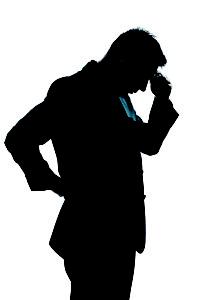 Been seeing lots of lads with Moustaches lately? Yep… it’s Movember! I love Movember! The Movember movement aims to create awareness regarding all things to do with Men’s health. Staying on the topic of Men’s health, I thought I’d blog about ‘Andropause’ (a so-called ‘male’ version of menopause).
Been seeing lots of lads with Moustaches lately? Yep… it’s Movember! I love Movember! The Movember movement aims to create awareness regarding all things to do with Men’s health. Staying on the topic of Men’s health, I thought I’d blog about ‘Andropause’ (a so-called ‘male’ version of menopause).
Andropause is believed to affect about 39% of men over the age of 45 years, and it’s also referred to as partial androgen deficiency in aging males (PADAM). While the phenomenon of a male menopause is debatable, the physical effect of reduced testosterone is very real, and very common. Testosterone is one of the primary male sex hormones, and it’s crucial for the development of male reproductive tissues, building muscle, bone formation, normal sexual drive and stamina, and overall well-being.
Symptoms of reduced testosterone include;
- Reduced libido and sexual function
- Fatigue and reduce vitality
- Poor memory and concentration
- Lowered self confidence
- Lowered mood
- Reduced muscle mass and/or difficulty gaining muscle mass
Although hormonal changes are actually a natural part of ageing, we now know that some men maintain a higher level of sex hormones longer and later in life. So the question is, how can this be achieved? And how can men maintain healthy hormones to a ripe old age?
There are certain herbs and nutrients which are useful for men going through a ‘change of life’. Let’s take Zinc, which is perhaps the most critical trace mineral for male sexual function. Zinc is found in high concentrations in the prostate and testes, and is absolutely essential for healthy hormones in men. Selenium is also important, as it is involved in the synthesis of testosterone (amongst other things!). Both Zinc and Selenium are also vital for healthy ageing as they act as powerful antioxidants in the body.
Damiana (Turnera diffusa) is a herb which has traditionally been used in Mexican medicine for sexual inadequacy, impotence, and depression. Studies have also shown that Damiana suppresses aromatase activity, meaning it has the potential to increase testosterone in the body. Tribulus (Tribulus terrestris) is another popular herb which has been used for millennia due to its action as a ‘male tonic’. It’s touted to do everything from aiding muscle growth, to increasing fertility, sexual function, libido, and vitality. Korean Ginseng (Panax ginseng) and Withania (Withania somnifera) are also occasionally recommended for men with low testosterone. Be mindful however, the geographical regions in which these herb are grown significantly affects the chemical profile (and therefore the actions). It’s important that all herbal medicines used are regulated and tested for efficacy and safety. Seek advice from a qualified Naturopath of Herbalist.
Above all of this, the following basic guidelines will provide the MOST benefit in terms of healthy hormones and healthy ageing;
- Eat real, whole foods. Don’t overeat, and keep processed foods to a minimum
- Keep alcohol to a minimum
- Stay active, and move regularly
- Quit smoking… I repeat, QUIT smoking
- Stress less, play, laugh, practice gratitude
- Aim for 6.5-8 hours of quality sleep, every single night
- Avoid oestrogenic compounds (soy protein isolate/processed soy, plastic food wraps, personal care products, etc.)
- Get regular check-ups with your GP
Until next time, Stacey.
PS – Apologies for the lack of blogging lately… between business, study and pleasure… the past few months have flashed before my eyes! Thanks for staying tuned

